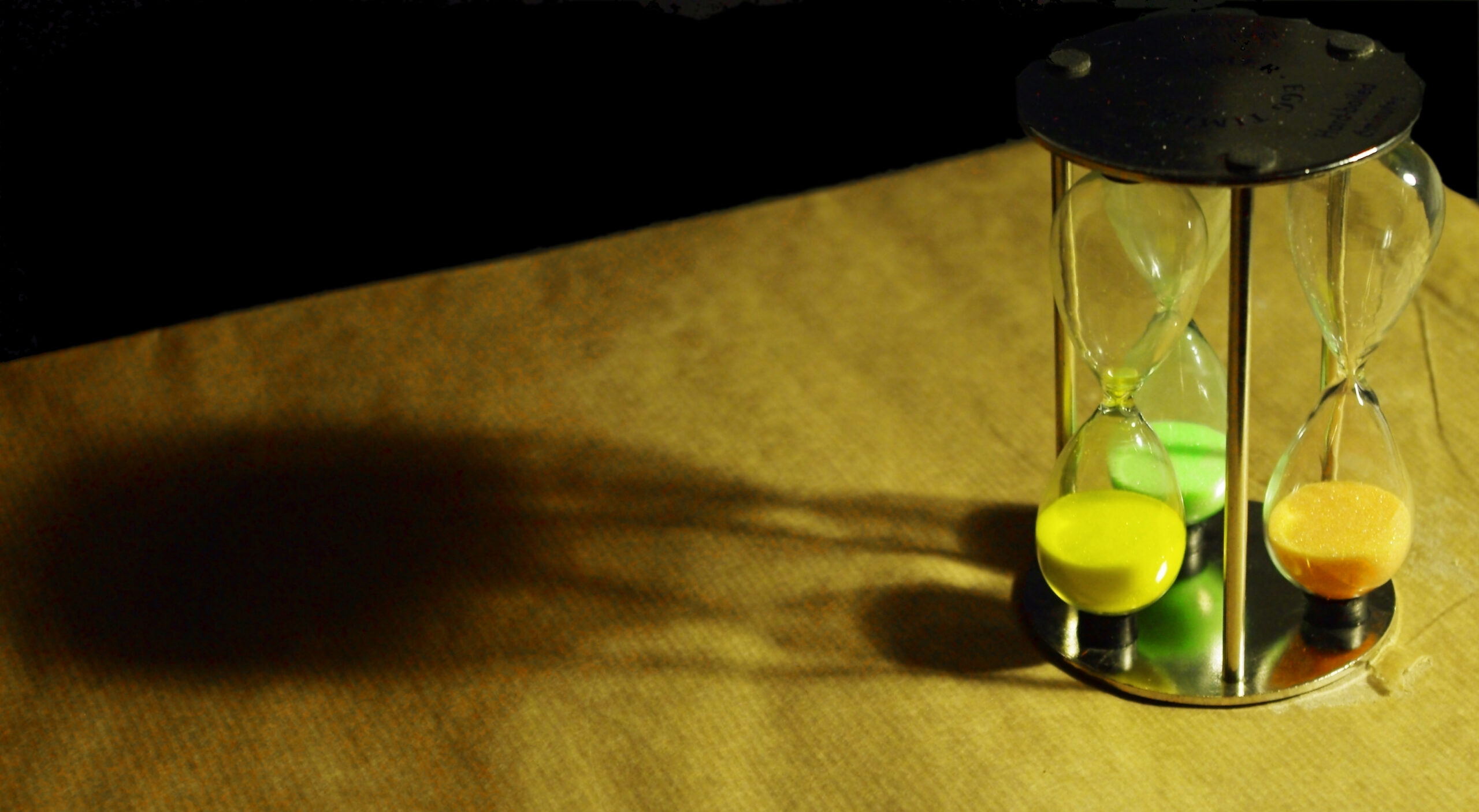Apparently humans are the only animals that plan ahead for the future. At least that’s been the conventional belief. Recent research on scrub jays and certain types of monkeys challenges this assumption, and presents deeper questions on what it means exactly to relate mentally and emotionally to the future, or really, to any moment beyond the present. But when a bird hides a snack for safekeeping, is that truly comparable to the laborious processes of human rumination, fixation, and anticipation?
And whether or not we are truly the only ones, what are we supposed to do? The declaration of this supposedly unique human capability or tendency renders our future-planning valuable, our obsessions a mark of higher order skills.
And yet, in my Mindfulness Based Stress Reduction (MBSR) course, we spend hours reminding ourselves that “life is only available in the present moment.” That our mental escapism removes us from engaging with the fullness of life in the now. That, in the wisdom of Bueller, “Life moves pretty fast. If you don’t stop and look around once in awhile, you could miss it.”
In the seminar, we train ourselves to embrace the mantra, “kacha zeh achshav,” “it’s like this now.” Perhaps this refrain is the complementary flip-side of the classic “gam zeh yaavor,” “this too shall pass.” All in all, we are as alive as we are capable of noticing it, again and again in each new moment.
But what are we without our plans and our memories? Who are we in a vacuum of stoic observation?
One week in the MBSR course, after days of violent rocket attacks on Southern Israel, a fellow participant spoke up during a period of group reflection on challenges in our progress. “During the week,” spoke the middle-aged man with a kippah, “I kept trying to stick with my meditation practice, listening to the recordings, doing the mindful breathing exercises and all; but I kept getting stuck, feeling so guilty.”
The instructor gently prompts him to describe his guilt further.
“See, I’m here in Jerusalem, and I’m fine, but I get all these alerts on my phone when the sirens go off in the South; and then I worry about our kids, and one is deployed, and the other is on reserves, and I just worry, like an Abba does.” He sighs, and grins kindly.
“So I see the alerts, and I call our kids and make sure I know their whereabouts. But then even once I know that one is with friends in Tel Aviv, and the other is on his base, and the other is with her in-laws up North, I still feel bad; because sure, my family is okay, but what about everyone else? Am I allowed to be okay when they are huddled in shelters? And before I know it I barely know where I am before I’m startled back to reality by the ding of my meditation timer.”
Kacha zeh achshav.
And instinctively I want to label this man crazy or hyper-anxious; I feel compelled to diagnose his concerns away until I catch hold of my hubris, my distracted ego roaming wild. I am trying to hold space for stories I will never understand.
A woman raises her hand to contribute; she said that last week, when she left this course, she noticed her bus driver was a woman with a hijab. “And I was so excited! I had never seen that before, and she was all covered and all – but driving!”
Hearing this confessional, my judgments flared up – in the name of liberal tolerance, naturally. Inhale, exhale, listen. This is Now.
“So, I’m sitting on the bus and feeling all empowered for this woman bus driver,” she smiles with feminist pride. “But then, within seconds, I totally flipped and automatically launched into panic: what if this bus is one minute away from exploding?”
OMG. In my mind, I hear: Intolerant. Stereotyping. Racist. And then: Classic Israeli. Oh, no. I realize, beside myself, that my cloud of meditative neutrality is weighed down by heavy vapors of harsh judgment. I do not know anyone’s experience. And besides, no one is asking for my opinion; it’s not the point right now. The same woman continues in a self-conscious frenzy:
“But then I felt like I was being crazy and maybe even racist? And besides, if she were actually going to blow up the bus there was nothing I could do about it at that point. But then I looked up and realized it was my stop, so I got off and I was so overwhelmed, I just started crying. Because within minutes I had just gone through so much without even traveling that far.”
Kacha zeh achshav.
I will never understand. But somehow, by revealing our private worlds of tangled worries and aspirations and consuming meta-narration, we come into closer contact with each other, and with this moment. Which is to say, with Life-Force itself.
Is there a place where we can be fully engaged in the vitality of the Now, while drawing on our experiences and being drawn toward a future direction? Where considering tomorrow is not an evasion of today? I believe there must be, that it is all One. And that place must be something like hope.
Can hope be a bridge from today to tomorrow? Can almost-knowing be enough, when knowing is out of reach?
I choose to believe, or at the very least, I hope so.





